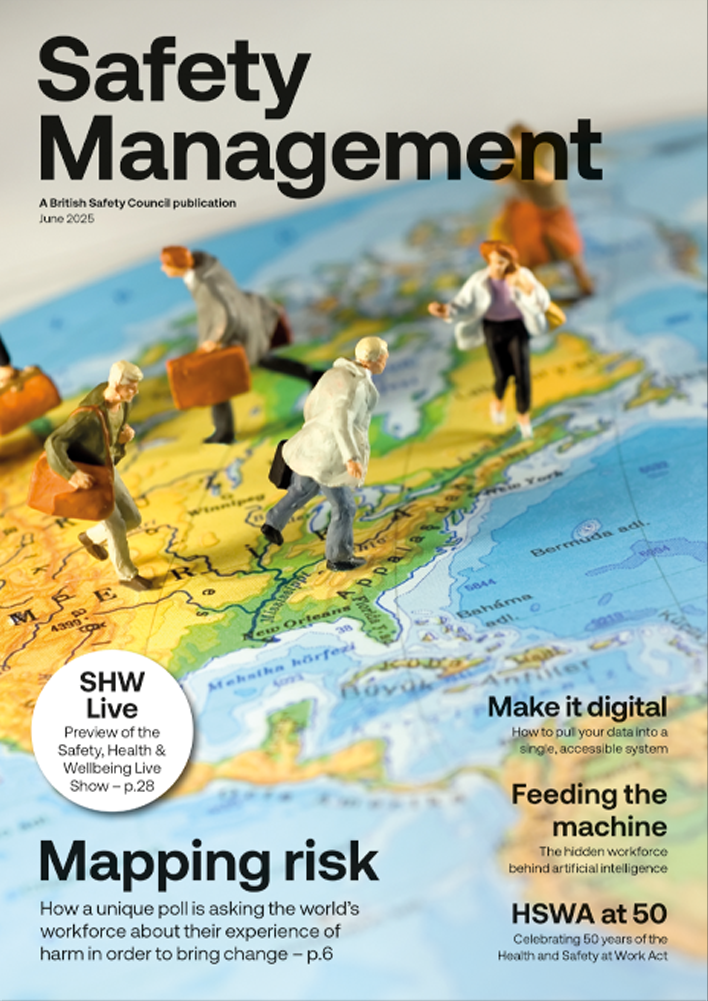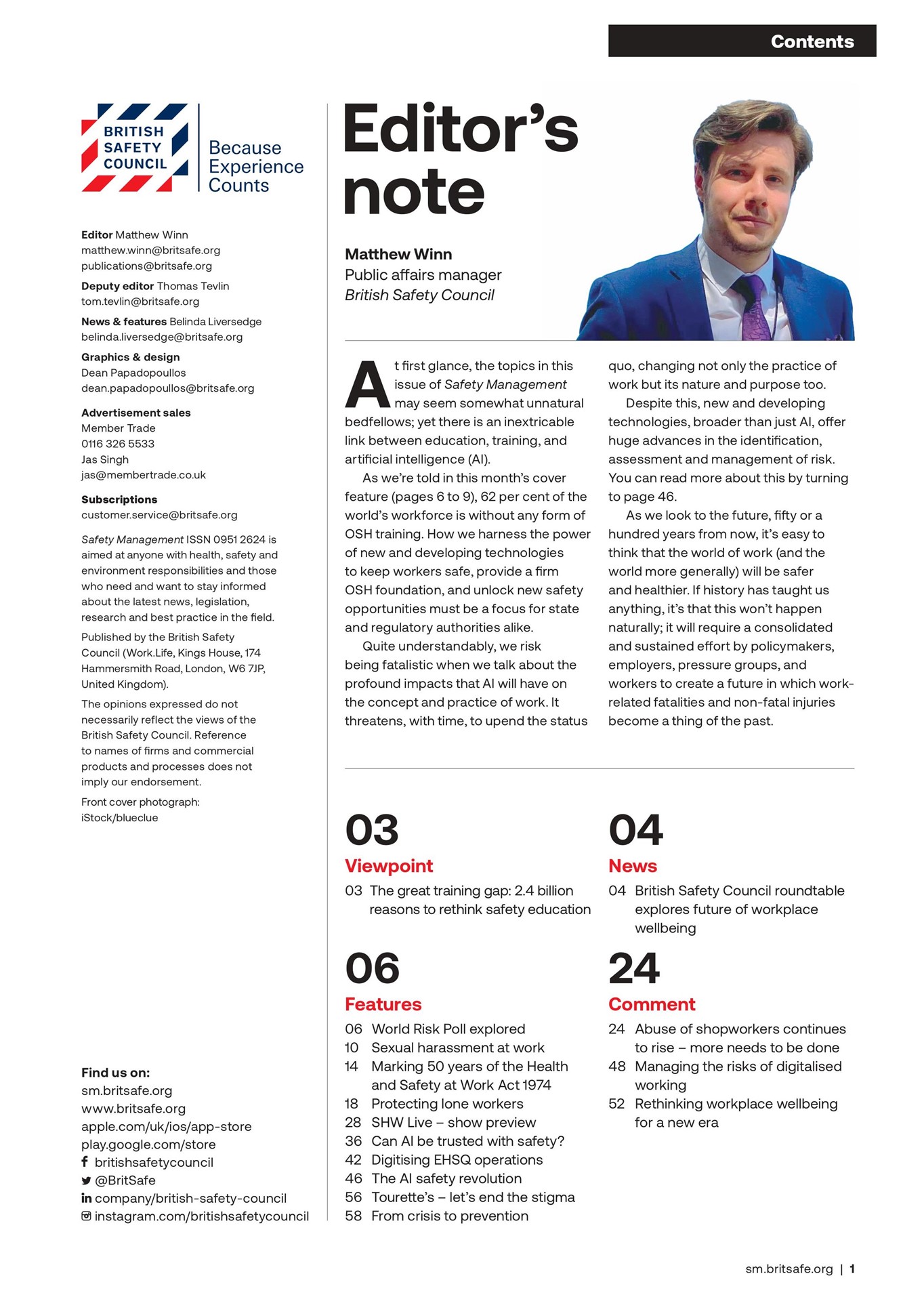Early research suggests that hybrid working may generally have a more positive than negative impact on worker wellbeing, but employers must nevertheless watch out for problems like feelings of loneliness and isolation among hybrid workers.
Features
Hybrid working – heaven or hell?
In the UK on 16 March 2020 our Prime Minister made the unprecedented announcement “now is the time for everyone to stop non-essential contact and travel”, and on the 23 March the UK was plunged into its first lockdown.
Little did we know, at that stage, that our working lives would also change forever. The advent of home working was new for many businesses and the coming months were a blend of ‘you are still on mute’ or herding pets and children away from Zoom/Teams calls.
Fast forward three years and many organisations are still in a quandary about how they adapt. Employees enjoyed the additional freedom that they experienced over lockdown and on the flip side companies are pondering if their culture is eroding without people all being together in person, in one place.
 A Kantar survey noted that 64 per cent of workers feel their physical health has improved by adding in remote working. Photograph: iStock
A Kantar survey noted that 64 per cent of workers feel their physical health has improved by adding in remote working. Photograph: iStock
So, what is the answer?
Firstly, it’s important to acknowledge that hybrid is a term often misunderstood – there isn’t just one form of hybrid. In fact, the University of Leeds suggested there are five forms: Balanced, Fixed, Timeless, Nomadic and Free (see illustration below right) – all giving employees a different level of freedom based on when and where they work.
So, let’s look initially at the wellbeing benefits of hybrid…
A Kantar survey noted that 64 per cent of workers feel their physical health has improved by adding in remote working. In addition, 69 per cent of Gen X reported that they feel more relaxed when working from home. With 42 per cent of respondents also taking more dedicated breaks when working from home.
All this data seems to back up the sentiments that we hear from employees, through our work, which is that they feel they have a more balanced home/work life and report looking forward to seeing colleagues on the days when they are in the office. Also, many disabled employees report feeling more productive and comfortable at home, as the environment is specifically tailored to them, especially as being in the office now tends to mean hot desking.
We also hear of a positive impact on financial wellbeing, with employees reporting huge savings from reduced commuting costs, such as train fares and vehicle fuel. Alongside this, time savings have also been found.
From an employer perspective, this improved level of employee wellbeing has enhanced the likelihood of attracting and retaining the best talent. Employees are happier and healthier (and therefore are providing better service to customers) and many employers report that their teams are more engaged with their work. And, of course, there are obvious financial savings for businesses from having a reduced real estate footprint.
 Bex Moorhouse: "Be intentional and co-create with a full engagement plan for implementation."
Bex Moorhouse: "Be intentional and co-create with a full engagement plan for implementation."
However, with so many seemingly obvious positives, are there any down sides to hybrid?
It seems that across the board after reviewing Kantar data, emotional health has suffered since remote working has increased in all age ranges. Many employees report an increased feeling of being isolated at work, with 54 per cent of Gen-Z’s and 59 per cent of Millennials reporting a lost sense of belonging at work. These negative feelings can lead to tension among team members and can also place an emotional strain on the home or hybrid worker’s household.
Our focus groups back up this data, as employees when presented with a safe space to explain how they feel, have reported feelings of isolation and being less connected to their company culture. Learning and development has also been more challenging as employees are in various locations.
The extra screen time has been exhausting for many as many audio calls have switched to become video calls. Employees without suitable home working set-ups have also reported more musculoskeletal pain. Plus, the urge to carry on working and just finish this or that task, has also meant working hours have increased. Employees have reported feelings of isolation and being less connected to their company culture when working to a hybrid model. Photograph: iStock
Employees have reported feelings of isolation and being less connected to their company culture when working to a hybrid model. Photograph: iStock
Employers have also reported various challenges emerging as remote working has expanded. For example, some employees seem disconnected and have reduced loyalty to their company, and there is a sense that if employees are working from home, they could be working for any business, with little loyalty to their employer.
Communication is also more challenging as there is less opportunity for spontaneous catch-ups. With employees increasingly working from home, loose ties among the workforce have got looser, and close ties have got stronger. Employers have reported finding it difficult to spot existing talent for promotion within their business, making it harder to fill internal vacancies.
So, on balance is hybrid working ‘heaven or hell’?
The reality is that research in this area is limited, mainly as the model has been operating for such a short time. However, the data that does exist seems to point more to the positive impact that hybrid work arrangements have on wellbeing when implemented with careful intention and thought.
So, if this is the case, how do we implement hybrid to ensure that any of the negative impacts described are minimised?
1. First define what type of hybrid you wish to work in.
2. Ensure your hybrid methodology links to your company values and mission statement.
3. Create a cross-functional taskforce to fully understand and support colleagues as they adopt this new way of working.
4. Ensure you are aware of the health, safety and environmental implications of hybrid working – as an employer you still have the same responsibilities for ensuring and supporting the health and safety of people working from home as for office workers. So, ensure home workers undertake and receive display screen equipment assessments; check they have a suitable and comfortable workstation and DSE equipment; and train them on the importance of precautions such as maintaining a good posture and taking regular breaks.
5. Review the office environment – if people will now be coming in to meet each other, consider if changes need to be made to the
physical office space to facilitate this and support these new ways of working. Consider additional technology, meeting rooms and social spaces etc.
6. Provide guidance on which activities are more effectively carried out in the office rather than at home. This will ensure employees naturally gravitate to the office for certain activities – for example, attending the office for wellbeing checks ins and one-to-ones with managers and colleagues.
7. Ensure you ‘co-create’ – enlist a group of hybrid champions at all levels of your organisation to solve any hiccups that may occur along the way and support the messaging around the benefits and expectations of hybrid.
8. Review whether each role is suitable for hybrid – some jobs simply cannot be performed remotely or on a hybrid basis, such as certain health and safety checks and fire safety walkabouts etc.
9. Ensure employees focus on ‘we’ not ‘me’ – what works best for an individual may not be best for the team, but regularly connecting with colleagues in person will naturally happen and is generally a good idea for all types of people and personalities.
10. Constantly assess through surveys and focus groups if the system is working and don’t be afraid to change if sentiment shows that it could be done more effectively in another way.
Here are our top three takeaways for successful hybrid working:
- Hybrid doesn’t work for every business and work team – one size doesn’t fit all, and just because a famous corporate is rolling this out, it doesn’t mean it will work for every business. Consider what your business wants to achieve by adopting hybrid working and ensure full due diligence is performed before anything is rolled out.
- Be intentional and co-create with a full engagement plan for implementation. When the roll-out happens, this is when the work starts. Always measure performance and ensure new employees are given advice about the most effective ways to make a success of hybrid when they join.
- More positive wellbeing data exists around hybrid than negative, but employers need to be clear about boundaries and ensure that none of their team get left behind and end up feeling isolated or lonely during hybrid work. Generally, offering a hybrid working pattern allows businesses to attract and retain the best talent. This is in part because it signals trust and empowerment for new starters, which is something that is top of the agenda for many job seekers right now.
However, simply announcing via email that the business is adopting a hybrid model doesn’t work, even though we have seen this happen repeatedly. Instead, employers should involve their staff in the decision-making process around adopting a hybrid model, and ultimately empower them to work in ways that enhances their wellbeing and therefore their performance.
When employees feel seen, heard, and valued absolute magic happens!
Bex Moorhouse is founder of Invigorate Spaces Ltd
FEATURES

A year on – what have been the developments in competence management and the golden thread?
By Sofie Hooper, Association for Project Safety and Anthony Taylor, Resolve Risk Ltd on 03 July 2025
Last July the authors published an article in Safety Management where we looked at the expectations for those responsible for managing competence and those creating and managing the golden thread. In this edition we provide an update on both these key requirements of the Building Safety Act/Fire Safety Act’s ‘new regulatory regime’ including for higher-risk buildings (HRBs).

Stars, stripes and safety
By Belinda Liversedge on 02 July 2025
It seems like America today is rarely out of the news, particularly since President Trump won his second term. Our ‘special relationship’ with America has continued, with the country a strong pipeline for inspiration, products and trends.

The hidden risks of lithium-ion batteries
By Adrian Simmonds, QBE Europe on 01 July 2025
With UK fire services now tackling at least three Li-ion battery fires a day, it’s clear that stronger regulation and enforcement is urgently required to prevent the sale, use and modification of poor-quality and potentially dangerous batteries used in e-bikes and scooters.



